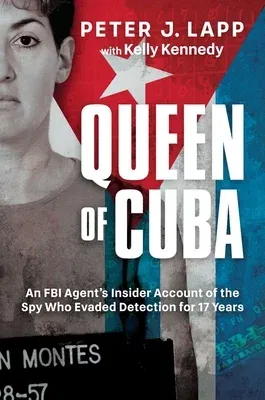As a spy prepared to give away America's biggest secrets after the
9/11 attacks, an FBI agent raced to catch her.
U.S. government officials knew they had a spy. But it never occurred to
them it was a woman--and certainly not a superstar Defense Intelligence
Agency employee known as "the Queen of Cuba."
Ana Montes had spent seventeen years spying for the Cubans. She had been
raised in a patriotic Puerto Rican household: Her father, a
psychiatrist, was a former colonel in the U.S. Army. Her sister worked
as a translator for the FBI and helped break up a ring of Cuban spies in
Miami. Her brother was also a loyal FBI agent.
Montes impressed her bosses, but in secret, spent her breaks memorizing
top secret documents before sending them to the Cuban government. She
received no payment, even as one of her missives could have brought her
the death penalty.
She also listened to anxiety-relief tapes, took medication, and saw a
psychiatrist. She dreamed of a normal life where she could work a job
she enjoyed. She dreamed of getting married, and even had a man in mind:
a defense analyst on the Cuba account for Southern Command. He had no
idea that, three times a week, Montes pulled a short-wave radio from her
closet and received encrypted messages from Cuba.
After the 9/11 attacks, Cuba wanted Montes to continue her work. They
couldn't know the FBI was already on to her. Retired FBI agent Peter J.
Lapp explains the clues--including never-released information--that led
their team to catch one of the United States' most dangerous spies.

